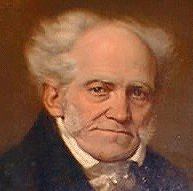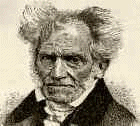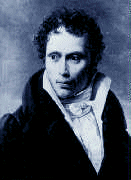
Arthur Schopenhauer was born February 22, 1788, in Danzig, the son of a wealthy merchant. He was given a private education and then attended a private business school. The sudden death of his father in April 1805 changed the course of his life, and, during the next two years, he acquired in Gotha and Weimar the academic preparation necessary for attendance at the University of Göttingen. Beginning as a student of medicine, he transferred to the humanities, concentrating first on Plato and Immanuel Kant. He then attended the University of Berlin, but ultimately earned his doctorate of philosophy from the University of Jena.


